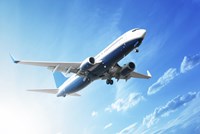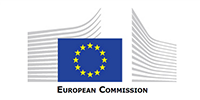
Today the 28 EU Transport Ministers authorised the European Commission to start negotiations for EU-level aviation agreements with the Association of Southeast Asian Nations (ASEAN), Turkey, Qatar and the United Arab Emirates (UAE). This is one of the main deliverables of the new Aviation Strategy for Europe - a milestone initiative to boost Europe's economy, strengthen its industrial base and reinforce its global leadership position, which are three core priorities of President Jean-Claude Juncker.
EU Commissioner for Transport Violeta Bulc said: "Global connectivity is a driver of trade and tourism, directly contributing to economic growth and job creation. I am pleased that we have the support from the 28 EU Transport Ministers to upgrade Europe's aviation relations with some of our key partners. Only months after its adoption, the delivery of the Aviation Strategy for Europe is firmly on track. Once agreed, these agreements will offer new business opportunities to the whole aviation sector, new routes and better fares to passengers, whilst guaranteeing a level playing field to our companies. However this is only the beginning. I now invite Member States to continue working on the remaining mandates."
EU-level aviation agreements create new economic opportunities and ensure fair and transparent market conditions based on a clear regulatory framework for all actors. They ensure market access, promote investment opportunities, facilitate air travel and provide a wider choice to consumers. They also aim to ensure high standards of safety, security, air traffic management and infrastructure, as well as in consumer, social, and environmental protection.
Once concluded, it is estimated that the economic benefits of the agreements could be:
- ASEAN: up to € 7.9 billion in the first seven years of the agreement (2017-2023) and up to 5,700 new jobs by 2023.
- Turkey: up to € 5 billion annually from increased tourism, up to a 50% decrease in ticket prices thanks to the opening of markets, and a total of up to 48,000 new jobs.
- Gulf Cooperation Council States: considered all together, up to € 8.4 billion during the first eight years of the agreement (2018-2025) and 8,300 new jobs by 2025. ]
The Commission will now reach out to these partners in order to start negotiations shortly.
The Transport Council today also discussed the progress achieved under the Dutch Council Presidency on the Commission's proposal for a revision of the Aviation Safety Regulation. This proposal is another key component of the Aviation Strategy for Europe and aims to maintain high safety standards alongside growing air traffic. This includes the creation of the first EU-wide legal framework for drones. Work will continue during the Slovak Council Presidency.
Background
The Aviation Strategy for Europe is one of the initiatives listed in the Commission Work Programme for 2015. The goal of the Aviation Strategy is to strengthen the competitiveness and sustainability of the entire EU air transport value network.
The Commission proposed to negotiate new EU-level aviation agreements with several countries and regions in the world, including: ASEAN, the Gulf Cooperation Council States, China, Turkey, Mexico and Armenia. Today's mandates were the first step towards increasing the number of agreements negotiated by the Commission at EU level.
Experience has shown that negotiating EU-level aviation agreements with third countries is an effective tool. For example, since the signature of the EU Air Transport agreement with the Western Balkan States, the number of passengers has almost tripled. In the case of Morocco, it has doubled. Since the conclusion of the agreements with the US and Canada the combined growth in passengers between the EU and these markets has been more than 3 million.
About The European Commission
Transport directly affects everyone in Europe. Whatever age we are, and whatever activities we undertake, transport and mobility play a fundamental role in today’s world. The aim of the Commission is to promote a mobility that is efficient, safe, secure and environmentally friendly and to create the conditions for a competitive industry generating growth and jobs. The issues and challenges connected to this require action at European or even international level; no national government can address them successfully alone. The European Commission’s Directorate-General for Mobility and Transport works in concert with the European Union Member States, European industry, citizens and stakeholders.




Comments
There are no comments yet for this item
Join the discussion